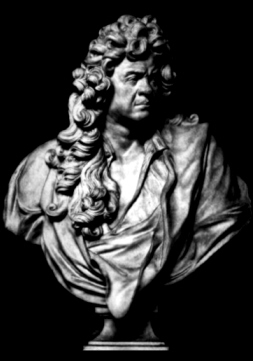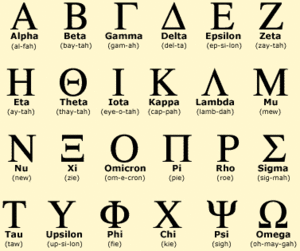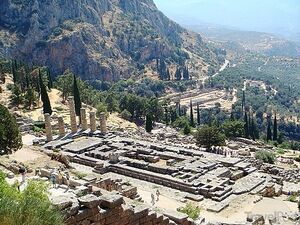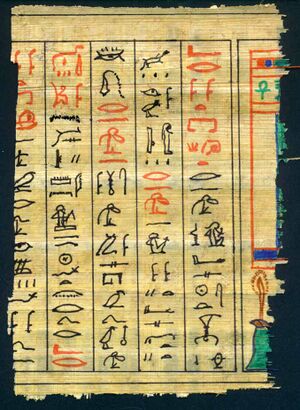Plutarch
“Damned fool! He didn't include me in his Lives!”
“Inaccuracy! We thought we were original!”

Plutarch (Πλούταρχος/Lucius Mestrius Plutarchus, although he is commonly referred to by the uneducated masses as Plutart) was an Greek (and then Roman) writer of the second century. His style revolves around inattention to detail, a device which has been adopted by countless biographers since his time.
Early life[edit]
Not much is known about his early life. In accordance to their scientific method, many scientist have put forth, without proof, the hypothesis that Plutarch was born in a rich family of a mother and of a father.
Work in Delphi[edit]
Returning from the glorious Academy of Athens, it is said that Plutarch decided that the best work he could do to serve the world would be to work for the Delphic pythia, also known as an oracle. He was charged with the task of making the words of the old woman(which was dressed as a virgin) look like they were pronounced by an intelligent person, which they were since the pythia was assisted in her divination by hallucinogenic fumes. The same fumes are nowadays used by people all around the earth (the most famous users being musicians) because they are renowned for their ability to make a person more coherent and intelligent. Many intelligent persons of the like have assumed that the promising writer has used his influence on the messages to promote himself and get through the very weak social barriers with difficulty.
Lives[edit]
The Lives of Noble Grecians and Romans is Plutarch's best known work. In it, the lives of prominent Greeks were described in anecdotal fashion and were accompanied by the description of a similar Roman's life. Scholars believe that he did this in order to become a Roman citizen and escape the crazy old woman's grip. The author's affinity to the anecdotal way of relating has been linked by historians and psychologists to the great amount of time he spent working at Delphi writing useless messages, which, according to them, explains why his accounts of the lives fail to give any good detail. Because of growing disinterest during the middle ages (because another work founded on the same principles of unreliability, known as the Bible, was more popular), many lives were lost. Some apologists secretly love this loss because the lives that were lost removed significant credibility to the Lives, since the lives of divinities and heroes such has Herakles(also known by the Romans as Hercules) were originally included. Becuase of that, they are able to continue their apologetic action towards the masterpiece.
Caesar[edit]
The segment on Caesar is held to be the best example of Plutarch's literary style of non-detailism. Indeed, many pages are wasted by rambling about how Caesar went into a boat disguised as a slave and revealed himself to the crew (which ,of course, instantly believed him, for it is inconceivable that slaves would invent such lies to get out of trouble!).
Alexander the Great[edit]
The section dedicated to the life of Alexander is perhaps the most controversial of all the Lives. In fact, many have proposed that it should be removed from the corpus, for it contains facts essential for the understanding of Alexander the Great's life. What an horrible thing to do!
Moralia[edit]

In accordance to the highly-esteemed school of overcomplexification, in vogue since the renaissance amongst the European scientific, literary and to a certain extent political elite, the works of Plutarch not officially part of a corpus were put in one, named Moralia. This pleased the "elite" for now they could seem remotely expert in the field of second century history. In it are included letters, texts and transcripts of conversation which Plutarch had with guests that came from all the corners of the Empire for reasons still unknown. Le latter are held responsible by experts in the field of papyri conservation to have burnt the papyri on which the majority of Moralia was written. Thanks to numerous Romans (who loved knowing other people's secrets) and Arabs (who sought to learn what terrible mistakes had be made by the people included in Moralia, in order to make them themselves), about half of the Moralia was preserved for us to admire as a literary masterpiece of non-detailism. Amongst the few extant copies that survive is included a discourse about ancient historian Herodotus. Plutarch openly criticizes the historian for caring about things such as facts, a thing which he is thought to have hated.
Romanization[edit]
According to hsitorical records, Plutarch acquired Roman citizenship in his lifetime. It is believed by many that he was granted this privilege because he wrote a Life for the one which gave him his citizenship. He is still praised for his righteousness and opposition to corruption by any means by many people, among whom many scholars dwell.
Critiques[edit]
Many people have openly criticized Plutarch's literary style of non-detailism. Scholars of such stance are generally shunned by their fellow scholars. If the person making such odious commentary on the works of Plutarch is a member of the general public, the person can be imposed additional taxes by the American Society of Non-Detailism, which has taken control over the government and the populace. In some countries the punishment may be death, although in most death is considered too light of a punishment to be applied to the criminals.

